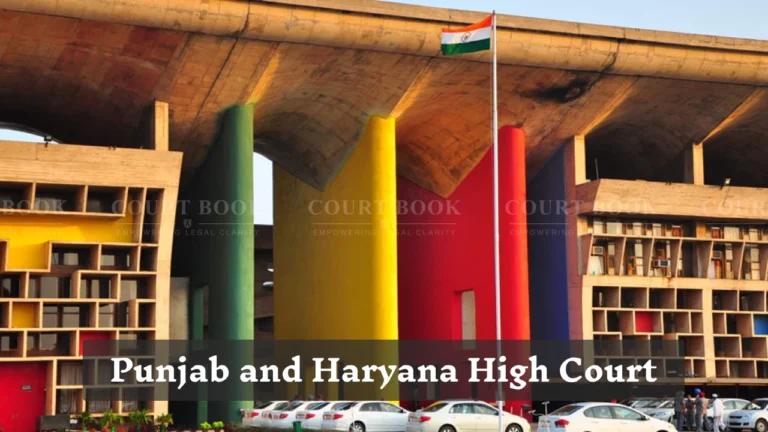In a significant ruling, the Punjab & Haryana High Court addressed whether an accused is entitled to a hearing before cognizance is taken under Section 223 of the Bharatiya Nagarik Suraksha Sanhita (BNSS). The case, Sikander Singh vs. Directorate of Enforcement, centered on the petitioner’s challenge to orders denying him this opportunity in a money laundering case.
Background of the Case
The petitioner, Sikander Singh, was arrested in April 2024 under the Prevention of Money Laundering Act (PMLA), following an Enforcement Case Information Report (ECIR) registered in 2021. A prosecution complaint was filed on 27.06.2024 before the Additional Sessions Judge, Gurugram, who directed it to be sent to the Special Judge (PMLA) for cognizance. The BNSS came into force on 01.07.2024, introducing Section 223, which mandates a hearing for the accused before cognizance.
The petitioner sought this hearing, but the Special Judge dismissed his application, stating the complaint was filed under the old CrPC regime. Cognizance was later taken on 05.12.2024 without hearing the petitioner, prompting the High Court challenge.
Read also:- SC Confirms Medha Patkar’s Conviction in Decades-Old Defamation Case by Delhi LG V K Saxena
Key Legal Issues
The core question was whether the petitioner’s right to a hearing under BNSS Section 223 applied, given the complaint was filed before BNSS’s enactment but cognizance was taken afterward. The Court examined:
- Savings Clause (Section 531 BNSS):
This provision states pending inquiries or trials under CrPC continue post-BNSS. The Court held that merely filing a complaint without judicial scrutiny does not constitute an "inquiry" under CrPC Section 2(g). - Judicial Application of Mind:
The Additional Sessions Judge’s act of forwarding the complaint was administrative, not judicial. The Special Judge applied judicial mind only after BNSS’s enactment, making Section 223 applicable. - Beneficial Construction of Statute:
Citing T. Barai v. Henry AH Hoe, the Court ruled that procedural benefits (like a pre-cognizance hearing) should apply retrospectively to ensure fairness, as they do not alter substantive rights.
Read also:- Delhi High Court: Calls for Yasin Malik's Reply on NIA Death Penalty Appeal
Justice Tribhuvan Dahiya set aside the impugned orders, directing the Special Judge to grant the petitioner a hearing under BNSS Section 223 before fresh cognizance. The judgment underscored:
"The right of hearing is embedded in natural justice and Articles 14 and 21 of the Constitution. Denying it would undermine fair trial principles."
The ruling clarifies that procedural safeguards under BNSS apply if cognizance is taken post-enactment, regardless of when the complaint was filed. It reinforces the judiciary’s role in ensuring equitable application of new laws.
Case Title: Sikander Singh vs. Directorate of Enforcement, Gurugram
Case No: CRM-M-29954-2025














